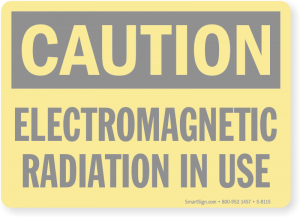
As Dr. Martin Blank at Columbia University, New York City, justly noticed, people are predisposed to resist information, that may challenge the safety of EMF exposure from their beloved gadgets like smartphones, WiFi-connected laptops and so on. Indeed, I think, it’s challenging for many people to read about the increased risk of cancer due to smartphone radiation, especially to read this from the screen of that same smartphone. So, let’s try this time something not so disturbing and uncomfortable. Let’s check if your smartphone use can cause some smaller health problems like headaches, earaches, chronic fatigue and so on. Unexpectedly for some of us, science knows a lot on the issue again. (I mean again as in a case with cell phone/cancer link, see my post here if you are strong enough.)
While a headache is kind of subjective symptom, people clear realize if they experience this in the particular moment. That is why this is not so hard for people to self-assess this symptom and compare this with cell phone use routine. Firstly my colleagues and I carried out such survey among Ukrainian university students in 2010 [1], when we only started to realize, that the problem exists. And we were a little bit shocked by the first results obtained. Over 40% of participants of that survey admitted that they experienced headaches and/or earaches during long-term cell phone conversations. (We expected something like a few percent as the evidence of the problem.) More expected was our next finding: the longer young people talked on a cell phone daily, the higher percent of people, who experienced headaches/earaches was in a subgroup. See the graph from that study below. While among students, who talked on a cell phone less than 15 min per day there were “only” 20% of those who had headaches/earaches, 63.6% of those who talked on a cell phone more than 3 h per day, experienced pain in the head or in the ear.

In the next survey, in 2012, we revealed the other regularity [2]. While only 16% of young people, who possessed a cell phone one year or less, experienced headaches/earaches during cell phone talks, almost 50% of those who had cell phone 2 years or longer, experienced pain in the head or in the ear during cell phone use. See the next graph. And in 10 years of cell phone use after some period of adaptation of the organism to a new risk factor we saw a tendency on increasing the people with the symptoms again. Just one comment. In the first questionnaire we asked students kind of provocative question “If you are sure that a cell phone use is seriously risky for your health, will you stop to use it?” Guess what? Exactly, 87% of young people answered “No, I’ll die with my phone!” We didn’t ask so stupid questions any more.

Well, what about research from the other centers? In 2014, Polish researchers unveiled data, that according to their epidemiological study as much as 62.2% of adult cell phone users in the country had symptoms of a headache if they talked on cell phones often or during a long period of time [3]. So, we see almost the same results as we obtained for heavy users of cell phones among Ukrainian students. In 2016 researchers from India published data, that among Indian medical students, 22% of cell phone users experienced headaches and 91% (!) of them experienced earaches, if they talked on a cell phone more than 2 h per day [4]. And, by the way, the same survey revealed that those young people, who spent 1 h or more per day using multimedia on cell phones, experienced health problems like headaches, earaches, blurring of vision or insomnia in 73% of cases against 27% among those who used cell phones for social media, games and video less period of time.
Chinese researchers recently demonstrated that even among 9-12 years old Chinese children those of them who possessed a cell phone more than 1 year, experienced almost twice increased risk of headaches (from 6.6% to 13%), fatigue (from 11.8% to 19.4%) and sleep disorders (from 16.2% to 25.9%) as compared to children who did not have a cell phone yet [5].

And Korean researchers have found that among Korean adult population those people whose average duration of one cell phone call was 5 min or longer, experienced twice more frequent moderate headaches and 4 times more frequent severe headaches as compared to those whose average duration of one cell phone call was less than 5 min [6]. Once again, 4 times more frequent severe headaches just due to longer cell phone calls.
And now, there is just an amazing work of some guys from Egypt [7]. The researches not only surveyed Cairo students, but also developed instructional guidelines on proper use of cell phones (some tips like those you can find here), introduced it to the students, and in a couple of months repeated the survey. And they obtained really impressive results. Just due to students’ awareness of the risks of cell phone radiation and of safer options of the gadget use, they significantly decreased frequency and duration of cell phone calls, and improved their habits like not keeping a cell phone in a bed during a nighttime and so on. As a result, prevalence of headaches and lack of concentration among the students dropped almost twice (from 27.8% in the first survey to 16.7% in the second survey) and insomnia prevalence dropped triple (from 16.6% to 5.6%). Just in two months, without any medicines and additional funds. Indeed, knowledge is power.

And the very last comment. Recently a friend and colleague of mine, Sergiy Kyrylenko, carried out some research project in Campinas University, Brazil. He noticed that local students spent much less time on a cell phone as compared to European students, due to the service in Brazil is rather expensive. So, we tried to organize some pilot survey on the issue among Brazilian students, and we did it (not published yet). Guess what? While most Brazilian students (79%) spent less than 15 min per day on cell phone talks, only 6.9% of them experienced headaches/earaches during the process. For comparison, more than half European students spend over 1 h per day in cell phone talks (the service is relatively cheap here), and, as I said before, over 40% of them can experience headaches/earaches. As you see, the cheaper is not always the better.
Be informed and healthy,
Dr. Igor Yakymenko
References:
- Yakymenko I., Sidorik E., Tsybulin O., Chekhun V. Potential risks of microwaves from mobile phones for youth health. Environment and Health, 2011. 56(1): 48-51.
- Yakymenko I., Mor O., Tsybulin O., et al. Subjective symptoms in young cell phone users in Ukraine. Environment and Health, 2015(2): 40-43.
- Szyjkowska A., Gadzicka E., Szymczak W., Bortkiewicz A. The risk of subjective symptoms in mobile phone users in Poland–an epidemiological study. International journal of occupational medicine and environmental health, 2014. 27(2): 293-303.
- Datta S., Nelson V., Simon S. Mobile phone use pattern and self reported health problems among medical students. Journal of evolution of medical and dental sciences 2016. 5(21): 1116-1119.
- Zheng F., Gao P., He M. Association between mobile phone use and self-reported well-being in children: a questionnaire-based cross-sectional study in Chongqing, China. BMJ open, 2015. 5(5): e007302.
- Cho Y.M., Lim H.J., Jang H., et al. A cross-sectional study of the association between mobile phone use and symptoms of ill health. Environmental health and toxicology, 2016. 31: e2016022.
- Mohamed H., Satar M., Talaat A. Effect of Instructional Guidelines on Students, Practices Regarding Safe Use of Cell Phone. Life Science Journal, 2014(11): 486494.



